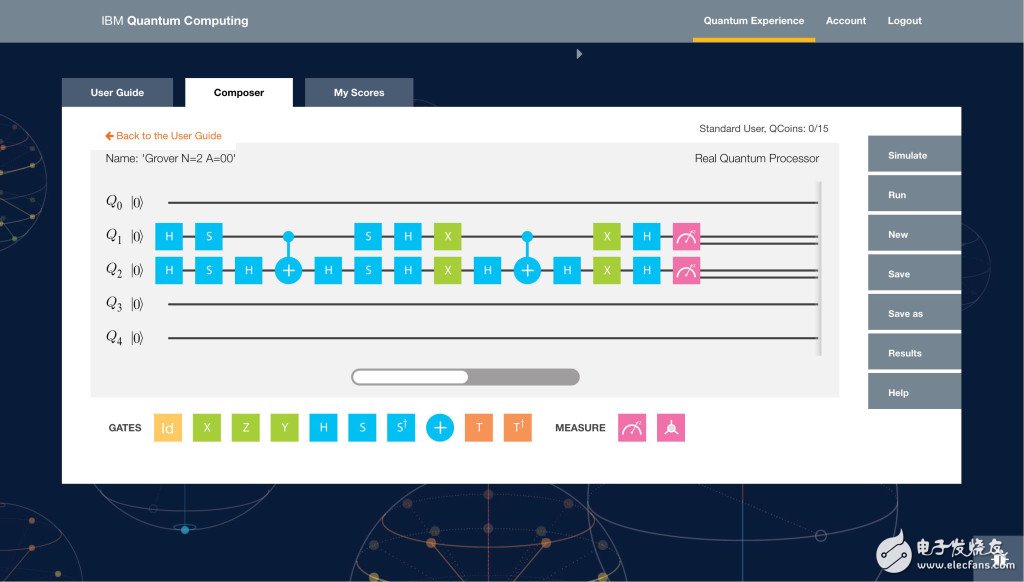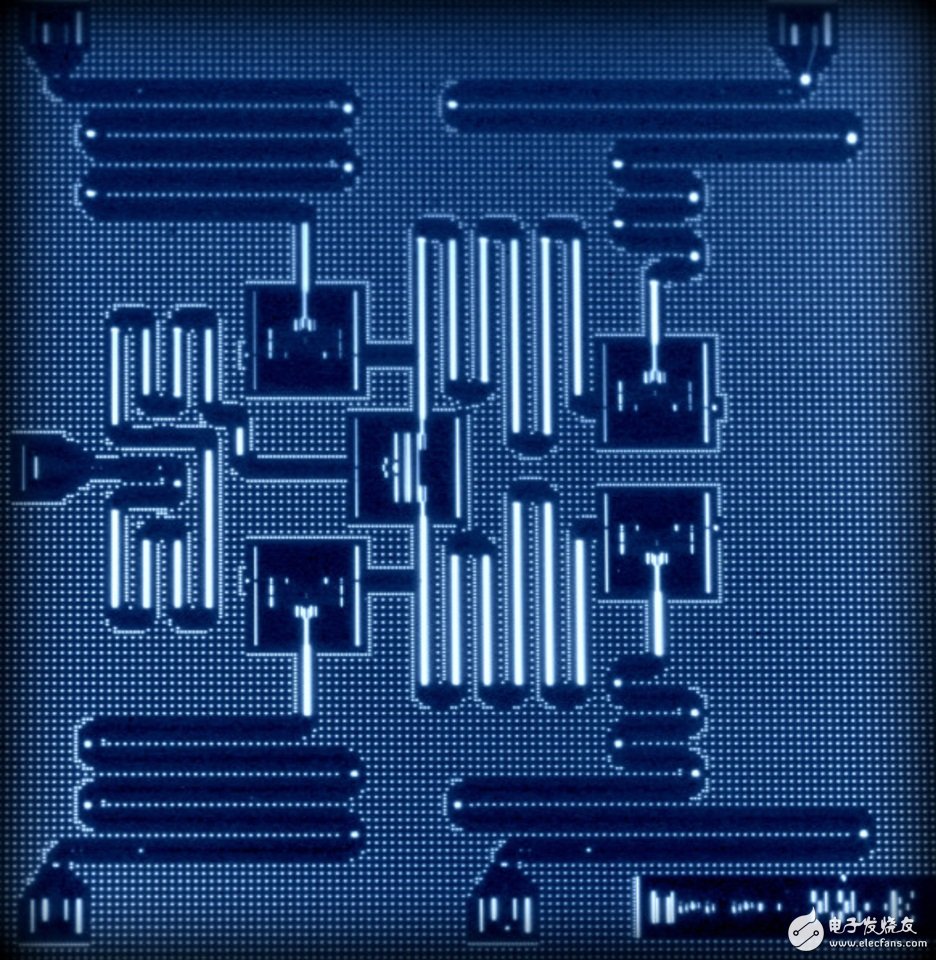When it comes to quantum computing, what people first think of is its mystery and complexity. The theoretical basis and prototype construction of quantum computers make the top technology organizations like Google and NASA feel tricky. But on the 4th of this month, IBM, which has always been low-key, first released quantum computers with online access to the world. The quantum computer's processor has five qubits and is maintained by researchers at the Yorktown Heights near New York. Anyone can access a computer through a simple software interface, provided that the visitor knows how to perform basic quantum computing. Quantum computers no longer use "1" and "0" to represent information states for calculations like traditional computers. For it, the problem of exponential time complexity that traditional computers can't do is a piece of cake. Screenshot of IBM's Quantum Cloud Service Software interface Ordinary people estimate that they don't have the opportunity to use this new service every day, but for those who are still struggling to make available quantum computers, IBM is definitely their lucky star. For IBM itself, the timely introduction of quantum computers allows the outside world to recognize and support the work they are doing now. Moreover, computing on quantum systems is not easy, and IBM also needs outside assistance. David DiVincenzo, a professor at the Institute of Quantum Information, Aachen University of Technology in Germany, said: "The online service of open quantum computers is not only to give IBM an edge in computing, but also to discover new ideas for future work from other people's research on quantum computers." The pioneer of quantum computing believes that IBM's release today will be of great significance to the world. Many researchers are expected to rely on quantum computers to make significant progress in their respective fields of research. From DNA sequence studies to stock price predictions, and even directly to specific molecular dynamics processes. Even researchers have seen quantum computers as the future of machine learning. For example, in order to improve machine learning, Google and NASA have spent more than $10 million on a quantum computer called D-Wave. IBM's 5 qubit processor Today's computers rely on tiny transistors to store information. Each transistor can only store a specific Boolean value: "0" or "1". But as early as thirty years ago, scientists hoped to build a new computer system different from this binary, a mechanism that can store both "1" and "0". They pin their future on the "state superposition principle" proposed by the fantastic quantum theory. Thus, two qubits can store four sets of values ​​simultaneously: "00", "01", "10", and "11". According to the superposition state principle, when the qubit is continuously increased, the amount of information stored by the system increases exponentially. This makes the existing computer architecture far behind. "This phenomenon can't be explained by ordinary logic," said Jerry Chow, a Yale University researcher who built IBM's computer. "There is only one central idea in quantum computing and quantum computing, that is, "how do you choose?" But such a powerful machine has not yet appeared. The qubit is very embarrassing. If you try to observe the quantum system, you will find that it disappears. It no longer superimposes "0" and "1" but is represented as a normal computer. To make the machine really work, the researcher needs to know how to predict which state the qubit will be. Although there are many people studying quantum bits, there is still no one to overcome the difficulties and become a "god stick" to predict the future, but some of them are feasible. For example, the quantum computer that IBM is doing now is to put the superconducting coils in an environment of almost zero absolute, and their computers seem to have quantum properties. Of course, in order to share such a computer with the world, IBM hopes to eventually expand its processor to 50 or 100 qubits. According to David Cory of the Institute of Quantum Computing at the University of Waterloo, such quantum cloud computing services are unprecedented. He further explained that this kind of thing is far more difficult than ordinary people think. "The quantum system is very fragile, and it is not easy to use a quantum computer all over the world. IBM is doing a great job, and the interface they developed makes the use of the computer simple." He added: "Even if it is Students who only learn the introduction of excessive sub-calculation will use it." Cory spent a weekend studying IBM's computer. He was very surprised by the stability of the quantum system: "Every time I run the test program, the results are exactly the same!" Today's notebooks can run hundreds of millions of times a second, but for quantum computing machines that look at the face, maintaining consistency in results is definitely a big step forward. Quantum cloud services are on the line, the door to the new era is already open, is the transformation of electronic technology far from us? Source: Wired, Translated by Transcend TECH2IPO / Transcend èµ›åšç’
The positive active material is mainly made of nickel, and the negative active material is mainly an alkaline battery made of cadmium.The nickel-cadmium battery used in AGV car has large internal resistance and can be used for large current discharge.Compared with other kinds of batteries, nickel-cadmium batteries can withstand overcharge or overcharge, and the operation is simple and convenient.The discharge voltage is somewhat different according to the discharge current. In general, the discharge termination voltage of about 1.2v nickel-cadmium battery is 1.0v /CELL, and the actual operating temperature ranges from -20 degrees to 60 degrees. In this range, the discharge can be repeated for more than 500 times.
Nickel Cadmium Battery,Nickel Metal Hydride Battery,Nickel Cadmium Rechargeable Battery,Nickel Cadmium Storage Battery Xinxiang Taihang Jiaxin Electric Tech Co., Ltd , https://www.chargers.be
